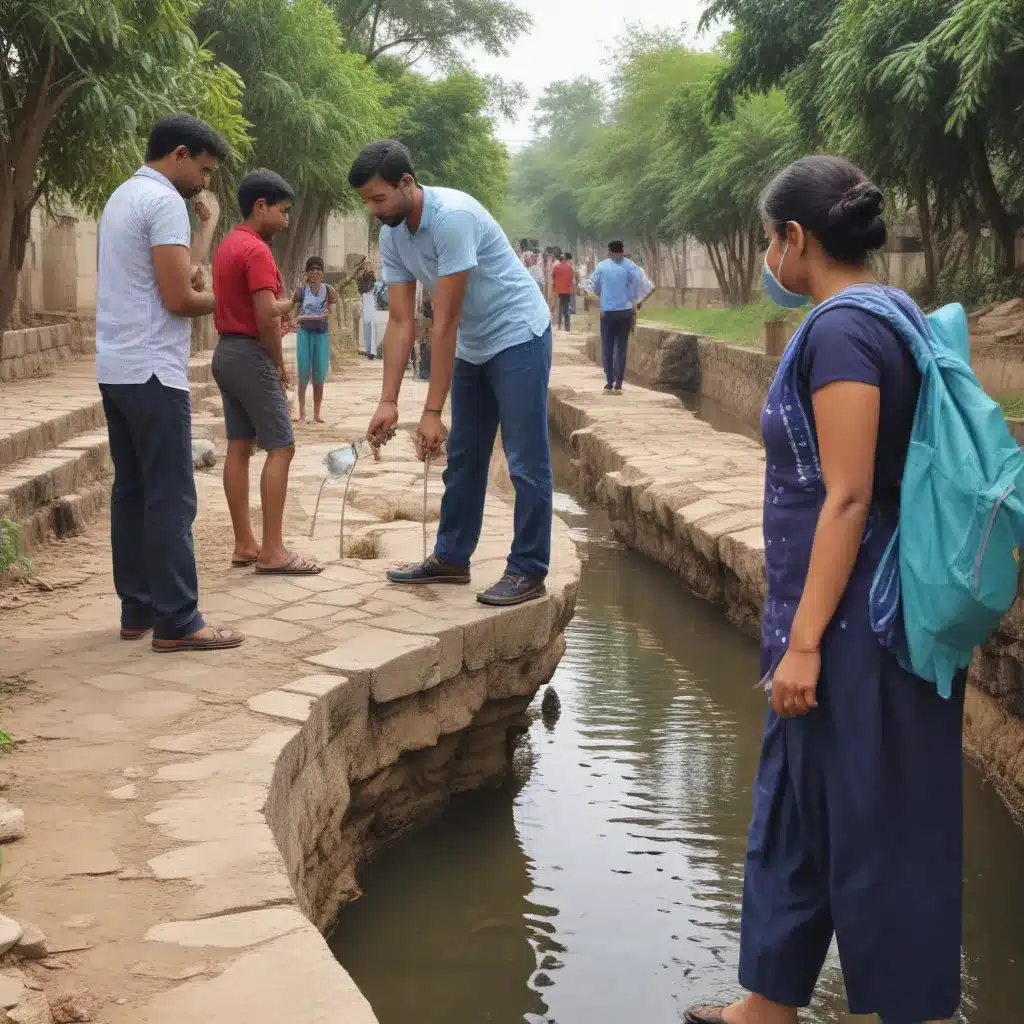
The Importance of Community-Driven Water Quality Monitoring
Access to safe, clean water is a fundamental human right and a critical component of public health. However, rapid urbanization, industrial growth, and climate change have put immense strain on water resources worldwide, including in Hyderabad, the thriving capital city of India’s Telangana state. Hyderabad’s expanding population and economic development have led to increased wastewater generation, much of which is discharged untreated into local water bodies. This has compromised the quality of the city’s surface and groundwater supplies, exposing residents to a range of waterborne illnesses and other health risks.
In response to these pressing challenges, a collaborative initiative between community organizations, academic institutions, and local government has emerged as a promising model for safeguarding Hyderabad’s water resources and public health. By empowering citizens to actively monitor water quality, this innovative program is generating crucial data, raising awareness, and catalyzing action to address water contamination at the grassroots level.
Empowering Citizens as Water Stewards
The Hyderabad Water Quality Monitoring (HWQM) initiative brings together diverse stakeholders to collaborate on assessing and improving the city’s water quality. At the heart of this effort are the local residents, who are trained to collect water samples and analyze key parameters such as pH, turbidity, and the presence of fecal coliform bacteria.
“We realized that community members themselves hold the key to understanding and addressing the water quality challenges in their neighborhoods,” explains Dr. Ravi Kumar, a professor of environmental science and the program’s lead coordinator. “By equipping citizens with the knowledge and tools to monitor their own water sources, we’re empowering them to become active stewards of their local water resources.”
Through hands-on workshops and field training sessions, HWQM volunteers learn how to use portable water testing kits to gather reliable data on the physical, chemical, and microbiological characteristics of their water. This citizen-science approach not only generates crucial information, but also fosters a sense of ownership and responsibility among participants.
Translating Data into Action
The water quality data collected by HWQM volunteers is meticulously documented and shared with local authorities, environmental organizations, and the broader community. This transparency and collaboration is key to driving tangible improvements.
“We don’t just collect the data and let it sit in a report,” says Anita Sharma, a community organizer involved in the program. “We work closely with the municipal water department, local elected representatives, and civil society groups to ensure that the findings are used to inform decision-making and catalyze real change.”
For example, when HWQM participants identified high levels of fecal coliform bacteria in a neighborhood canal, they immediately alerted the relevant authorities. This prompted an investigation that revealed illegal sewage connections, leading to the swift rectification of the issue and the restoration of water quality. Similarly, data on elevated turbidity and heavy metal concentrations in groundwater wells has motivated community members to advocate for improved water treatment and distribution systems.
Fostering a Culture of Water Stewardship
Beyond the tangible water quality improvements, the HWQM initiative has had a profound impact on the attitudes and behaviors of participating citizens. By empowering them with scientific knowledge and a sense of agency, the program has cultivated a deep appreciation for the value of clean water and a stronger commitment to protecting local water resources.
“Before, we used to just accept the poor water quality as a fact of life,” shares Sarita Devi, a resident of the Banjara Hills neighborhood. “But now, we feel empowered to monitor the situation, demand accountability from the authorities, and take collective action to address the problems. It’s truly transformative.”
This shift in mindset is echoed across Hyderabad’s diverse communities, with HWQM volunteers leading neighborhood clean-up drives, educating their peers on water conservation practices, and advocating for policy reforms to strengthen water governance and infrastructure.
Scaling up for Citywide Impact
The success of the HWQM initiative has not gone unnoticed. Local government agencies have increasingly partnered with the program, incorporating citizen-generated water quality data into their decision-making and supporting the expansion of the monitoring network to new areas of the city.
“What started as a grassroots effort has now evolved into a powerful model of collaborative water governance,” says Dr. Kumar. “By tapping into the knowledge and energy of the community, we’ve been able to generate robust data, raise awareness, and catalyze meaningful change – all of which are crucial for safeguarding Hyderabad’s water security and public health in the long run.”
As the HWQM initiative continues to grow, its organizers are exploring ways to further scale up its impact, such as by developing mobile apps for streamlining data collection and sharing, and by establishing partnerships with schools to engage the next generation of water stewards.
By empowering citizens to actively monitor and advocate for their water resources, the Hyderabad Water Quality Monitoring program has demonstrated the transformative power of community-driven initiatives in addressing complex environmental challenges. This innovative model can serve as an inspiration for other cities grappling with the pressing issue of water quality and public health, showcasing the potential of citizen science to drive sustainable solutions.
Conclusion
The Hyderabad Water Quality Monitoring initiative is a shining example of how community engagement and citizen science can be leveraged to safeguard public health and environmental sustainability. By equipping local residents with the knowledge and tools to actively monitor their water resources, this program has not only generated crucial data, but also fostered a culture of water stewardship that is driving tangible improvements in Hyderabad’s water quality.
As cities around the world face growing water challenges, the HWQM model offers a replicable and scalable approach to empowering citizens as agents of change. By harnessing the collective knowledge and energy of the community, this initiative has demonstrated the transformative potential of collaborative water governance, paving the way for a more sustainable and resilient future.
To learn more about the Hyderabad Water Quality Monitoring initiative and how you can get involved, please visit the Joint Action for Water website.

